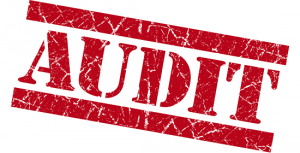 So you have received a dreaded audit letter from The City of Chicago Department of Revenue. What do you do now?
So you have received a dreaded audit letter from The City of Chicago Department of Revenue. What do you do now?
The first thing is not to panic. Surviving an audit is one of the basic necessities of entrepreneurship. Who represents you in the coming storm will have everything to do with how well you get through the problem. If you choose someone who is inexperienced, then you may have substantial problems.
Don’t kid yourself. The Department isn’t auditing you for their own health. They are doing this to collect as much money as possible. At Accounting Solutions Ltd., we have shepherded our clients through these type of audits for over 20 years. We would love to provide a complimentary consultation to work out an audit strategy that could save you substantial sums of money.
That being said, we have put together the following information to introduce you to the process.
The Agency
Normally, they open up at least fours years. The most common types of audits are Amusement Tax (7510) and Restaurant Tax (7525). But you may also be subject to Lease Transaction Tax (7550) and Use Tax for Non-Personal Property Tax (8402B, 8402CO, 8402IN, 8403).
The City of Chicago Department of Revenue is a small agency of around 50 employees. Given their size, they do not conduct many actual audits. Why is this important? Because there are very few firms in Chicago that have the experience necessary to handle this. If you go to a practitioner who has only done one or two of these before, you may literally be paying for their mistakes and education. Choose an experienced practitioner who has been down this road multiple times before.
The Importance of Time
All taxation agencies that audit need to justify their time. They are not going to send someone out to spend 50 or 100 hours on an examination if they do not expect to be compensated. If they are auditing a small organization on a very small tax, it may not be worth their time to continue. This is a money-making organization. If a manager is going to send someone out to do an audit, they need to have some sort of belief that they will collect enough revenues to justify their expenses.
The Examination Process
This is strange because it isn’t like a regular audit. In most instances they are auditing a smaller portion of your sales, like Amusement or Restaurant Tax. Because it is just a portion, how can they tie down a number? They can’t use your bank statement deposits because that includes all of your revenues. In many instances, they can only use your internal documentation.
This is both a blessing and a curse. As long as your documentation matches the returns and the returns were completed correctly, you should be fine. But that is the trick. Documenting everything correctly can be a difficult if not impossible task. Given multiple cash registers, with many of them collecting revenues subject to many of these taxes, in many instances it just isn’t easy.
Let’s also remember that nothing ever balances to the penny. If you’re collecting cash, your registers are always going to be over or short if someone isn’t stealing.
Time Revisited
Remembering that this department is a money-making organization and that they need to justify their time, whoever is representing you in the audit must be sensitive to this issue. If they spend too much time on it, then the agency is going to need to collect something.
There’s a couple of different ways to look at this. If I have an audit that’s clean. One where I can’t see where there is a problem in documentation or tax preparation, then I’m going to organize those files to the best of my ability. I don’t want them spending too much time on anything.
On the other hand, if I have an audit that’s dirty, maybe I don’t organize. Maybe I make it more difficult. Why? Because that auditor can only spend so much time on the audit. Maybe, at that point, he doesn’t have the time to find everything.
Statistical Sampling
This is very common. Its the rule rather than the exception. They’re not going to take the time to audit all of your transactions inside all four years of audit period. They will choose a sample month and see if there are any problems. If there are problems inside that month, they will just multiply that amount by the other 47 months, add interest and penalty, and send you a bill. This is of course unfair and unreasonable. In order to collect a tax, they have to prove your culpability. If they only look at one month, they have not exceeded the standard for burden of proof. This sampling method is something that you can accept or reject.
On the other hand, if you have computed and improperly filed the tax in question, you may want accept the number. Maybe they chose a month where that particular problem in the tax was light? Maybe they are actually offering you a great deal? Either way, experience is key.
Whether you have just been notified of an impending audit, or are in the middle of one that is going badly, we would love to help. The CPA’s and EA’s at Accounting Solutions have the experience necessary to get you through this process. Please contact our offices today for a complimentary consultation.
Chris Amundson
President
773-267-7500
www.AccountingSolutionsLtd.com
